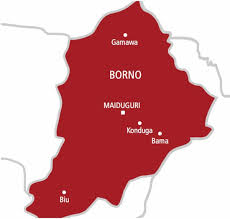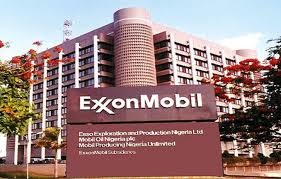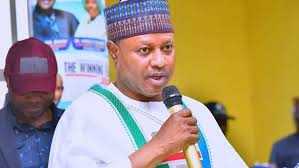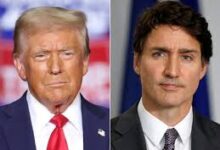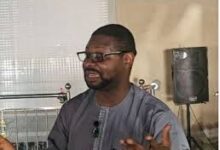What Donald Trump’s second presidency means for Nigeria, by Olu Fasan
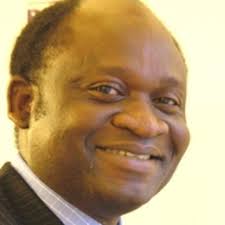
Earlier this week, on Monday, January 20, Donald Trump was sworn in as the 47th president of the US. Eight years ago, on January 20, 2017, Trump was inaugurated as America’s 45th president. His remarkable comeback, after a four-year interregnum, makes him the second US president, since Grover Cleveland in 1892, to return to office for a non-consecutive term after being defeated for re-election; he’s the first in 130 years! But Trump’s return is menacing. At home, he promised carpet-bombing change; abroad, he vowed aggressive expansionism.
In his ultra-nationalist ‘America First’ inaugural speech, Trump vowed to rename the Gulf of Mexico as the Gulf of America, ignoring Mexico’s sensitivity, and seize the Panama Canal, brushing aside Panama’s sovereignty. Before his inauguration, Trump threatened to forcibly annex Greenland, a territory of Denmark, and turn Canada into America’s 51st state. President Trump’s first coming in 2017 sent shock waves across the world; his second presidency will unsettle many countries. But what might it mean for Nigeria?
Well, the starting point is that Donald Trump is not enamoured of Nigeria. He once described Nigeria as a “shithole” country with “a reputation for massive corruption.” During his first term, President Trump’s relationship with Nigeria was transactional and condescending. Transactional, because it was based on Nigeria’s willingness to buy American agricultural products and weapons. Without that willingness, he didn’t give a hoot about Nigeria.
For instance, under President Barack Obama, the US refused to sell weapons to Nigeria, citing human rights abuses. But not under Trump. In 2018, when President Buhari visited the White House, Trump announced the US would sell 12 A-Super Tucano aircrafts to Nigeria. “They [Nigeria] were not allowed to buy military helicopters in our country for various reasons,” Trump said. “I worked that out; now, they can get them and get them very quickly.” He added for good measure: “We make the best military equipment in the world.” At the same meeting, Trump complained about Nigeria’s import bans, saying it’s important that “we are able to sell out great agricultural products into Nigeria,” adding: “And that will happen, OK?”
Truth is, for foreign countries, one way to Trump’s heart is economic; buying American products. In his inaugural speech, President Trump said America “will tariff and tax foreign countries to enrich our citizens.” He said he would establish “the External Revenue Service to collect all tariffs, duties and revenues,” adding: “It will be massive amounts of money pouring into our treasury coming from foreign sources.” The logic is trade reciprocity.
The US stopped being the major buyer of Nigerian crude nearly a decade ago, after it moved from the largest importer in 2012 to the tenth largest in 2015. However, Nigeria still has a trade surplus over America on goods exports. Trump doesn’t like that. He said the US gave Nigeria huge aid – “it’s so large you wouldn’t even believe it” – and demanded America be treated in a “reciprocal fashion” on trade. In his second term, with a more radical mercantilist mindset, President Trump will revisit these issues, and Nigeria won’t find favour with him unless it panders to his demand for greater reciprocity in trade relations
Then, there’s geopolitics. The closer Nigeria is to China, the further away it would be from America under Trump. In a recent interview with the Financial Times, Peter Pham, a senior Trump aide, tipped as a possible assistant secretary of state for Africa, said President Trump would be less indulgent with countries seen as antagonistic to US interests. He said Trump might extend the tariff-free access to the US under the Africa Opportunity Growth Act, AGOA, “only to countries that opened their own markets to the US exports and whose foreign policy was aligned with Washington’s.”
Trump threatened to impose a 100 per cent tariff on BRICS countries if they abandoned U.S. dollar. Nigeria’s recent renewal of the 15-billion-yuan currency swap agreement with China, intended to reduce its reliance on dollar transactions, might enrage Trump if it deepens economic ties with China at the expense of the US. Being a close ally of China might not win Nigeria favours with Trump!
So, economic and geo-strategic relations are two areas where Trump’s second presidency might adversely affect Nigeria. Furthermore, if Trump keeps his promise to “drill baby drill” and create glut in the oil market to bring down oil price and energy costs, then Nigeria could face headwinds with a N49.7 trillion budget predicated largely on high oil price. Add to that Trump’s mass deportations. According to the Office of Homeland Security, 2,725 Nigerians were deported from the US between 2017 and 2019, during Trump’s first term. Now, he wants to deport “millions and millions” of undocumented migrants. How many would be Nigerian? And is the government prepared to receive them?
But beyond the above, how would President Trump and President Bola Tinubu relate? Truth be told, Tinubu and his party are not fans of Trump and his party. Being a “progressive” party, APC shares affinity with US Democrats, not the Republicans. Indeed, Tinubu is rumoured to have donated to Hillary Clinton’s presidential election campaign in 2016. When she lost to Trump, APC leaders were distraught. One Buhari minister said the Democrats “went to sleep” in the election; another said he was “in a bit of shock”.
Recently, Professor Bolaji Akinyemi, a former external affairs minister, said: “If I were President Tinubu, I would steer clear of antagonising Trump.” But, in reality, Tinubu doesn’t like Trump. For instance, in September last year, President Tinubu’s Special Assistant on Media and Publicity, Temitope Ajayi, who must be speaking for his boss, disparagingly described Peter Obi as “the Nigerian version” of Donald Trump, saying: “Like Obi, Trump will use the most negative epithets imaginable to describe a country he wants to lead again just to make a point and rile up his base.” Trump won’t forget such a slight easily!
But the key event to watch is the 2027 presidential election. Why? Because APC won’t be able to count on a US Democratic president for support as Buhari did with Obama and Tinubu did with Biden. Former President Goodluck Jonathan believes Obama caused his re-election defeat in 2015, and many believe Biden rushed to congratulate Tinubu after the deeply flawed 2023 presidential election, prompting an angry open letter to President Biden by the acclaimed Nigerian writer Chimamanda Adichie. Well, Trump won’t keep silent if the 2027 presidential election is rigged, which would add fascinating dynamics to the poll.
Taken the foregoing together, Trump’s second presidency points to an interesting relationship between Nigeria and America. How well or badly will Tinubu manage it?


